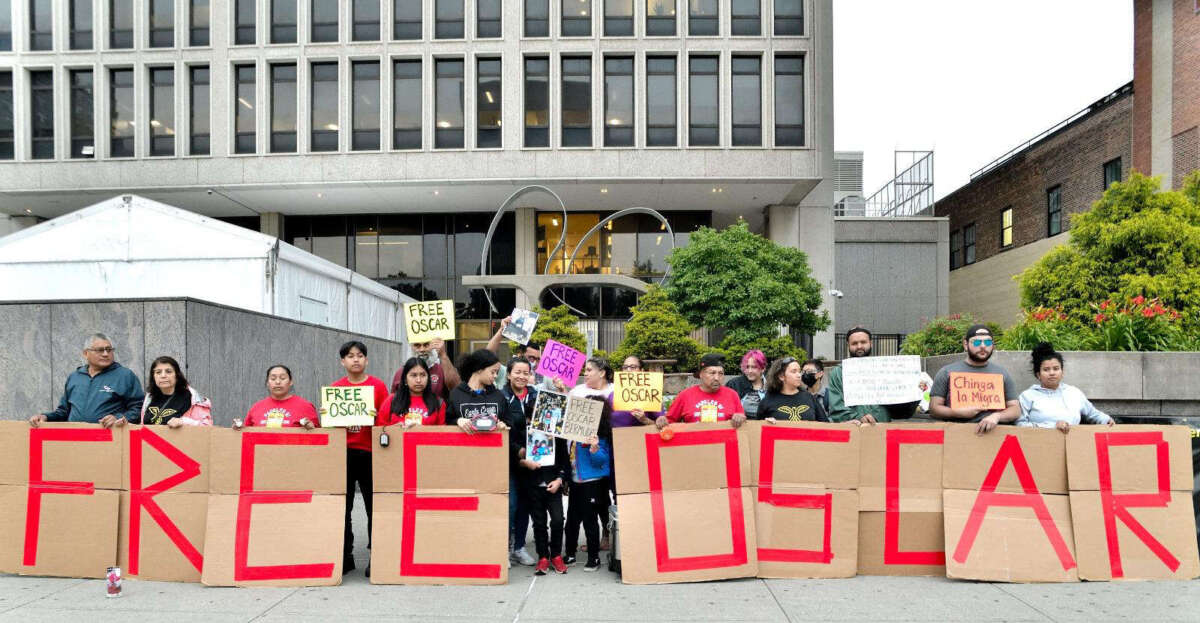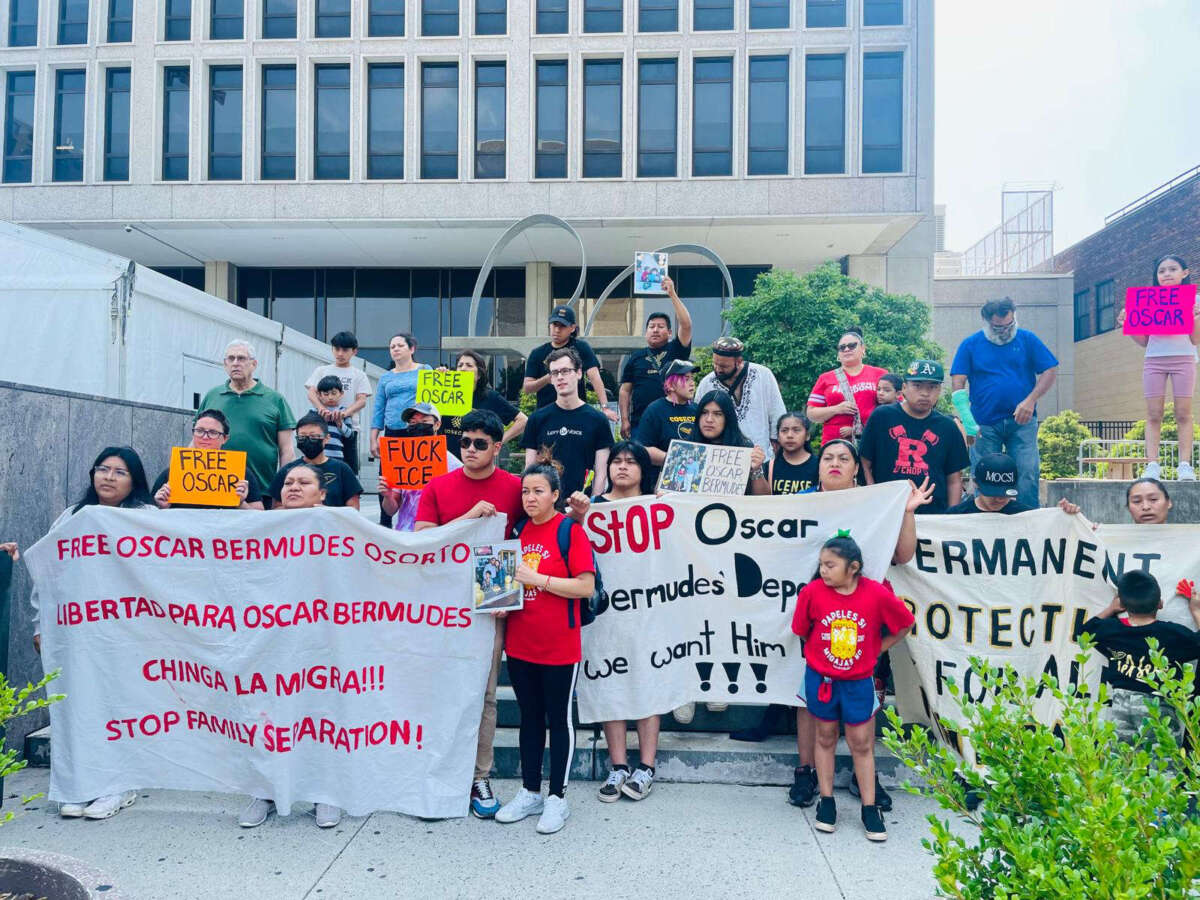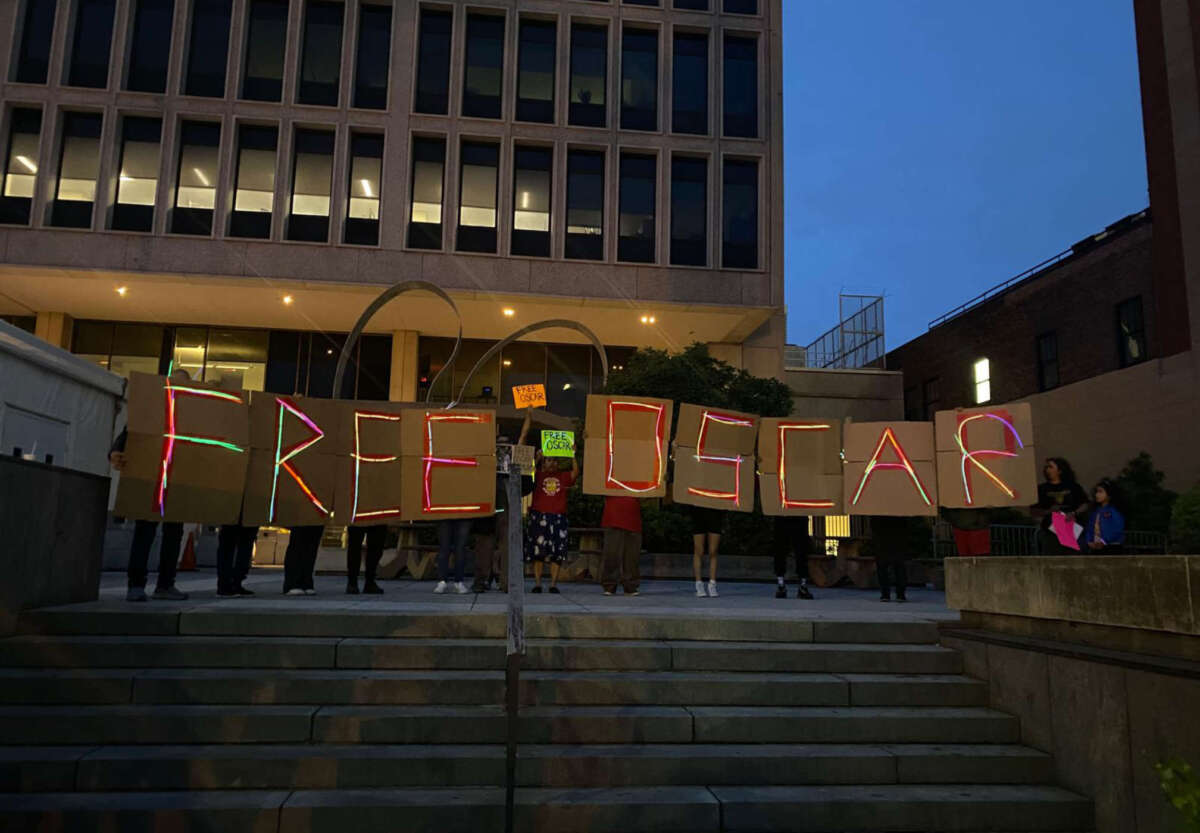Support justice-driven, accurate and transparent news — make a quick donation to Truthout today!
I am one of half a million people who are personally affected by the new “parole in place” immigration policy that President Joe Biden announced on June 18.
I am undocumented while my spouse is a U.S. citizen, and the Keeping Families Together program (or “parole in place”), which started accepting applications on August 19, allowed me to apply for permanent residence without having to leave the U.S. for years or risk deportation. Roughly 500,000 other “foreign-born spouses of US citizens” like me are also estimated to be eligible for the program.
When the announcement was made earlier this summer, I was eager to apply and grateful for the chance to fix my own status. I submitted my application the same day the application was available online.
Although the U.S. government is still accepting applications from undocumented spouses, the program is under a Republican-led legal attack, and on August 26, a federal judge in Texas put a 14-day hold on the program. The government has been blocked from processing applications for the program until the “administrative stay” on Keeping Families Together is lifted.
While my hopes are in limbo due to this attack, I am painfully aware that even if the hold on Keeping Families Together is eventually lifted, this policy still will not protect my father, Oscar Bermudes, who is currently facing deportation.
My father migrated from El Salvador when I was 5 years old. He has lived in the U.S. for 20 years, and despite decades of campaign promises to enact immigration reform, there are still no laws that protect him and millions of families like mine from the agony of family separation. Our family is “mixed status,” which means that some of us were born here and others have been able to apply for status through one of the limited and fragile programs that allow some immigrants to adjust their status, while the majority of us remain undocumented. We are one of millions of families that live with the daily threat of being separated by deportation.
This is the painful calculus of American immigration policy — a patchwork of executive actions that bring relief to a chosen few, while millions more are subject to increasingly cruel forms of immigration enforcement. Broadly speaking, enforcement comes in two forms: an explosion of border patrol that creates border detention camps, and makes crossing ever more dangerous for migrants, and deportations in the interior that rip families like mine apart. While the political debate over immigration moves in an ever more ethnonationalist direction, few understand the brutal reality of our current immigration system — and what deportation actually means for my family and thousands of families like mine who are currently fighting to stay together.
For 20 years, my father worked hard every day in this country. With his hard-earned money, he was able to open up his own trucking company. For 20 years, he paid taxes and built a life in the United States. For 20 years he supported his family, including his youngest son, my 8-year-old brother, who was born here in New Jersey. He is a loving father, husband and friend, and our family needs him here with us.

Our nightmare began June 4, 2023, when my dad was traveling to Michigan with one of his truck drivers. The GPS took them through Canada, at which point my dad was immediately detained by immigration. He was in detention for 26 days — the hardest and most heartbreaking time for me and my family. My dad spent Father’s Day detained at the Buffalo Federal Detention Facility in New York. I visited him for the day, looking at him through a glass screen but unable to hug him. He was so close yet so far. I talked to him through a phone while he was right next to me. I saw him in that blue uniform — how skinny he looked. After about 10 minutes our time was up, and I still remember how the tears rolled down my dad’s eyes, how he couldn’t look back at me and rushed out of the room. It broke my heart. I walked out of that room and I cried for the rest of the day knowing that I couldn’t do anything, knowing that I would be going back home and would not be able to take him with me.

There are 11 million people out there like my father: 11 million people subject to deportation, with no way to apply for legal status.
My dad wasn’t able to attend my brother’s high school graduation. I’ve had to comfort my little brothers, who badly missed our dad. These important and precious moments were stolen from both my dad and my brother. I could see it in my brother’s eyes — the sadness of not being able to see his father hug him after his graduation. My little brother asked me questions I didn’t know how to answer. He asked if my dad was arrested. He asked why. He asked when dad would come home to take him to the park and ride bicycles with him. As the oldest child, I felt it was my responsibility to stay strong and make sure my brothers and mom were okay. We felt the absence of 26 days of hugs, laughs and memories with our dad.
With Movimiento Cosecha we organized a public deportation defense campaign with our family and community to stop my dad’s deportation. After all the public pressure and legal advocacy, my dad was released, and we were able to obtain an approval for a yearlong stay of removal the day before he was set to be deported. This stay of removal recently expired and he had to check in with ICE on June 20 to request a second stay of removal. The request was approved for another year, but we don’t know what will happen next year. It is difficult having to live deadline by deadline without knowing what the future holds. It is difficult to live with this overwhelming uncertainty, not knowing whether they will allow my father to remain in the country or not.

There are millions of undocumented immigrants like my father who have lived in the U.S. for years. The last comprehensive immigration reform was passed almost 40 years ago; the law created a path to citizenship for 3 million undocumented immigrants in exchange for increased enforcement in the form of employment restrictions. This legislation created the basic framework for bipartisan immigration reform over the following decades: legalization in exchange for enforcement.
But as one administration after another failed to pass comprehensive legislation that would allow immigrants to apply for legal permanent residency, the immigration enforcement system grew ever crueller. Republicans, now calling for mass deportations, have become increasingly extremist, while Democrats have tracked them to the right. The Clinton administration expanded temporary protections for immigrants from certain countries, while criminalizing immigration and making it more difficult for most undocumented immigrants to adjust their status. The Obama administration enacted the DACA program, which allowed 800,000 undocumented youth to apply for temporary status, while deporting a record 3 million immigrants. As politics on immigration move further to the right, smaller and smaller segments of the community are granted fragile, temporary status, while the majority are criminalized and threatened with imprisonment and deportation.

The only way to break this vicious cycle is to demand the obvious: a path to legal status and permanent protection from deportation for the millions of us who have built families and a life in the United States. Anything less rips children away from their parents and destroys communities.
I am grateful for the “parole in place” option under Biden’s Keeping Families Together program, which could allow up to 500,000 spouses of U.S. citizens like me, as well as 50,000 stepchildren of U.S. citizens, to apply for status if the Republican-led legal attack against it is overcome.
But right now, my first thought when I wake up in the morning and my last thought every night is how to keep my dad here. And there are 11 million people out there like my father: 11 million people subject to deportation, with no way to apply for legal status; 11 million people who clean America’s offices at night, pick its fruit in the glaring sun, build its homes and take care of its children; 11 million workers who deserve to be treated with dignity, rather than exploited. It is time for all 11million of us to have permanent protection from deportation because we all deserve a chance to be able to live without fear.
Speaking against the authoritarian crackdown
In the midst of a nationwide attack on civil liberties, Truthout urgently needs your help.
Journalism is a critical tool in the fight against Trump and his extremist agenda. The right wing knows this — that’s why they’ve taken over many legacy media publications.
But we won’t let truth be replaced by propaganda. As the Trump administration works to silence dissent, please support nonprofit independent journalism. Truthout is almost entirely funded by individual giving, so a one-time or monthly donation goes a long way. Click below to sustain our work.
